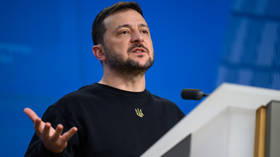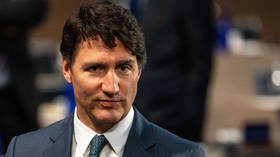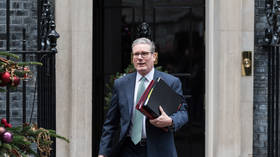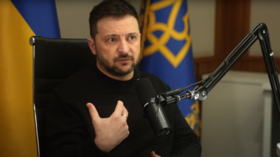Germany’s new foreign minister questions chancellor’s past decision
Shortly after assuming the post, Germany’s foreign minister has called into question Berlin’s arms sales outside the EU and NATO, calling for a rethink of military contracts.
Annalena Baerbock told Germany’s dpa news agency that the traffic light coalition, which is currently at the helm, has “made it clear that it will reexamine the arms export policies of recent years.” She added that the new government was “working on an arms export law that would clarify the criteria according to which arms exports are approved.” Germany’s top diplomat stressed that the sale of weapons was not merely a question of economy and profit, but rather one of “foreign policy, human rights and international relations.”
Foreign Minister Baerbock also told the German media that she would like to see a joint arms export control mechanism on a European level, admitting, though, that such an initiative was bound to be met with opposition from the likes of France.
It has transpired that during the last nine days of its rule, Angela Merkel’s outgoing government approved arms sales to the tune of nearly five billion dollars, bringing the total amount of arms export licenses to a record nine billion euros.
It is worth mentioning that the Social Democrats, who are part of the current ruling coalition, were also in the previous government that gave the controversial defense deals the green light. Olaf Scholz, Germany’s incumbent chancellor, was none other than vice-chancellor at the time. Baerbock, in turn, is the leader of Germany’s green party and is known for promises to deliver a “moral” foreign policy.
The number one recipient nation was Egypt, whose government has been criticized by some over alleged human rights violations and involvement in conflicts in Yemen and Libya. That notwithstanding, Berlin went ahead with the sale of three navy vessels and 16 air defense systems.
The Greens and the Left party have long been demanding a thorough review of Germany’s defense contracts, while the conservatives dismissed those criticisms as “crocodile tears” and insisted that all the existing contracts were in line with German law. Roderich Kiesewetter from the CDU party told the German media earlier that it was “in Germany’s best interest when countries in the Middle East continue to buy EU-made weapons.” He also warned the new government that if “these nations go on to procure weapons in China or Russia,” then Germany “will no longer have any political influence in the region.”













